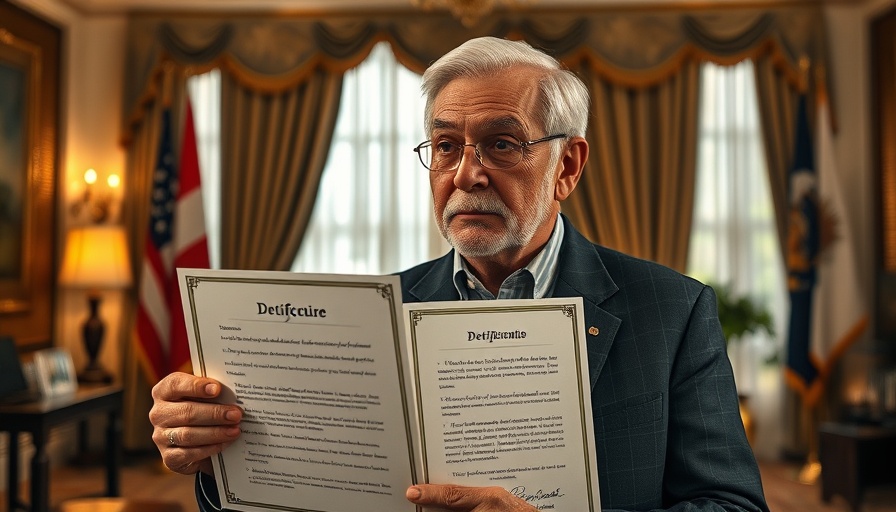
Trump's Executive Order: A New Assault on Local Climate Initiatives
In a bold move, former President Donald Trump has taken aim at state and local climate laws through an executive order that could reshape the environmental landscape across the United States. By directing the Department of Justice (DOJ) to examine and potentially block various climate initiatives, Trump is positioning himself against what he labels as burdensome regulations imposed by individual states.
These laws include measures like the "climate superfund" laws enacted in states such as New York and Vermont, which are designed to address pollution and climate-related challenges. Trump's stance has drawn sharp criticism from environmental advocates, who argue that this executive order undermines efforts to combat climate change and protect public health.
The Divide: Polluters vs. Public Health
Supporters of Trump’s initiative, primarily from fossil fuel industries, herald it as a necessary effort to preserve affordable energy. They argue that local regulations can stifle economic growth and limit access to vital resources. However, critics point out that prioritizing economic interests over environmental health could exacerbate climate issues, threatening the well-being of future generations.
Legal Implications: Overstepping Authority?
Legal experts are weighing in on the limits of the DOJ's authority in this matter. Many believe that the executive order may face significant challenges in the courts, as arguments arise regarding its constitutionality and the potential overreach of federal power. The outcome of these legal battles could set critical precedents regarding the balance of power between state initiatives and federal directives in environmental policy.
What This Means for the Future of Climate Action
As discussions surrounding climate legislation intensify, the implications of Trump's executive order will likely reverberate throughout local communities and state legislatures. Citizens who advocate for sustainable practices may find themselves in opposition to a federal stance that seems to favor industrial interests over ecological health. The ongoing debate will test the resilience of grassroots movements aimed at climate action.
In conclusion, whether this executive order leads to a rollback of critical environmental protections or ignites a renewed commitment to climate advocacy remains to be seen. As the nation grapples with climate realities, the importance of informed advocacy and active participation in local governance cannot be overstated.
 Add Row
Add Row  Add
Add 




Write A Comment